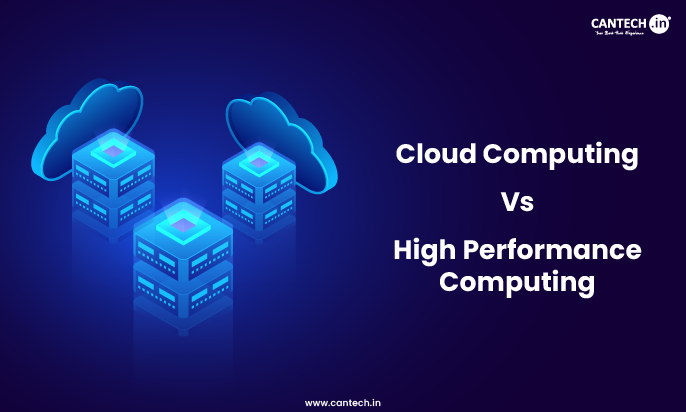Among the myriad of options for web hosting, two stand out especially for businesses and individuals alike: Cloud Hosting and VPS Hosting. Each provides several benefits and usually meets different kinds of hosting requirements; however, the differences must be understood and that could best be valuable in coming up with a more informed decision that will meet the requirements of your website’s growth and performance. Below, we take our exploration of Cloud Hosting and VPS further by breaking down their major features and benefits and ultimately how these impact website hosting.
Let’s start by understanding what each of them is prior to explaining the difference between cloud hosting and VPS hosting. That is, let’s define what both kinds of hosting are. We will first define what each one is, and then we’ll move on to their distinguishing features.
What is VPS Hosting?
VPS Hosting, or Virtual Private Server Hosting, is the hosting type that gives a client a virtual environment within one physical server. A physical server can be divided into several separate compartments; each of them acts as one separate, independent server. What this means is that you technically share the physical server with everyone else, but your allocated resources like RAM, CPU, and storage are isolated from all others.
VPS Hosting is an economical solution for the users who require more control and resources than shared hosting can provide but do not have a high cost of a dedicated server. Its primary advantage lies in the fact that you have root access to customize the environment of a server to match your requirement, thereby being ideally suited for developers and companies having custom-built software or applications.
Related: What is VPS hosting?
Benefits of VPS Hosting
Control and Freedom
The greatest benefits of VPS hosting are obtained through the level of control and flexibility, which it provides. Under such arrangements, you are not limited like users of shared hosting are when accessing server settings. Thus, users of VPS have full root access to their virtual environment. With that, they can perfectly configure the server according to their needs, such as installing custom software or making different settings on the system and running specialized scripts. It is especially helpful in cases of custom server environment support, either for a specific application or business that operates with a unique framework or workflow.
Another VPS hosting advantage is the ability to support you in personalizing the OS. It provides you with plenty of choices: different distributions of Linux or maybe even a Windows-based server. Such flexibility is extremely important for everyone who is dependent on specific software, which might function effectively only on a particular OS. With VPS hosting, you’re not limited by any kind of restriction that shared hosting has, thus having full liberty to build a server setup, perfectly matching the requirements of your project.
VPS hosting is also flexible when it comes to troubleshooting and optimization. You can fine-tune performance, upgrade security protocols, and resolve technical issues since you have total control over the environment – something you’d be waiting for a hosting provider to address if you were hosting elsewhere. It is ideal for businesses that need quick solutions and would love to have the option to resolve any potential issues internally.
Dedicated Resources
A major benefit of VPS hosting is the provision of dedicated resources such as CPU, RAM, and disk space. VPS hosting guarantees that every virtual server runs independently using its allocated resources solely, unlike shared hosting that pools all the resources between various users. This implies more performance and higher reliability since your website would not be affected by the activities or traffic spikes of neighbouring users. For sites that will have requirements for continuous uptime, high loading speeds, and stability, VPS hosting would definitely be a great foundation.
Dedicative resources guarantee smooth performance when the traffic is high due to holidays or some big event. It could operate resource-intensive applications or inexplicably experience a sudden increase in visitors and would run its site on dedicated access to CPU and memory, ensuring that your website can take the load without slowing down or crashing. VPS suits an e-commerce site, professional portfolio, or any platform where constant speed and uptime are necessary for an excellent user experience.
In addition to performance, dedicated resources also enhance data security. With VPS hosting, each virtual server is kept completely separate from one another, so the chances of an attack spreading across multiple accounts are less. This means that isolation gives an added layer of security against threats from malicious attacks or vulnerabilities by your neighbours. Your hosting solution will be more secure, reliable, and high-performing thanks to dedicated resources in the nature of VPS hosting.
Scalability
While it is probably not as scalable as cloud hosting, VPS hosting offers flexibility that is quite enough for a growing business or website. VPS hosting plans actually allow users to scale up their resources such as CPU, RAM, and storage whenever necessary. If your website experiences traffic growth or there is a need for increased server power because of demanding applications, then you simply upgrade the plan to accommodate your new needs. However, in most cases, the scalability of VPS hosting is constrained to the limits of the physical server hosting the virtual environment.
Although less scalable than cloud hosting, VPS hosting is still a very valuable solution to websites used by businesses in terms of growth in the early stages. They are able to start small and maintain low costs, then increase resources as business needs do. Unlike shared hosting in which you have to often migrate completely to a different tier, you can adjust your resources incrementally using VPS, grow, and progress at your own pace.
Those businesses that hope for medium to high growth rates will appreciate VPS hosting as it is not too pricey but can scale to the required resources. Not infinitely scalable, it provides an excellent robust solution for websites under growing traffic demands or businesses that intend to add more features and functionality in the future. So, VPS hosting remains to be a very attractive option for any start-up and expanding company with flexibility but not the hefty price tag that is associated with dedicated or cloud hosting options.
What Is Cloud Hosting?
Cloud Hosting refers to a hosting environment that uses multiple servers to balance the load and maximize uptime. Instead of being hosted on a single server, cloud hosting allows your website to pull resources from a network of connected servers located in different locations. This setup ensures high availability and reliability, as a failure in one server doesn’t affect the performance of the website.
Cloud hosting is highly scalable, which makes it ideal for growing websites or those experiencing fluctuating traffic. Resources such as RAM and CPU can be increased or decreased according to demand, providing a flexible solution for businesses that need to scale rapidly.
Read complete blog on what is cloud hosting.
Cloud Hosting Benefits
1. High Availability
Probably, the most significant advantage of cloud hosting is its capability to ensure very high availability through redundancy: whereas if a physical server faces hardware failure in a typical hosting environment your site will experience downtime until the problem is resolved. In cloud hosting the data of your website will be replicated across many servers in a cloud infrastructure. If one server crashes, another takes over and replaces it; therefore, your website is always live and online. This ensures less downtime for your websites, providing continuous availability, which has become a high criterion for business accessibility, since the markets are available 24/7.
Also, such cloud hosting provides more reliability about maintenance periods. In a cloud system, your website will keep running on another server in the network if one server is taken offline for routine updates or repairs. Your visitors would not experience anything else but a few minutes of minimal or no interruption at all. This high availability in cloud hosting is specifically beneficial when dealing with mission-critical applications, e-commerce websites, and businesses wherein uptime directly affects revenue and customer trust.
This redundancy is not only within one region but also from most of the cloud service providers. Most of these providers use geographical redundancy, spreading and mirroring your website data across multiple data centers within the regions. This will dilute the effect of any localized event, which could be a power failure or some kind of natural disaster. High availability enables hosting environments that are robust enough to handle contingencies without sacrificing performance or accessibility.
2. On-Demand Scalability
More than that, cloud hosting stands out for the benefit it gives to its scalability as it can provide capability on demand that will surely benefit some websites or applications that need to accommodate varied traffic. With traditional hosting, upgrading resources mainly the CPU, RAM, or storage often requires going up to another tier or even a new server. Cloud hosting will allow users quickly to scale up and down resources upon real-time needs. With a sudden traffic surge like a product launch or a holiday sale, you can scale up your resources without any kind of lockout or performance hit.
Scalability in cloud hosting is of most benefit to organizations that operate in dynamic environments-e.g., e-commerce sites, heavy content platforms or even digital marketing campaigns. In other words, you would not be locked into a certain amount of resources, but could scale up and down according to changing needs. You can take advantage of unused capacity during slow periods and avoid being caught off guard when traffic suddenly spikes.
On-demand scaling also improves the performance and experience of your website users. There is no longer a need to wait for manual upgrades, or be worried about being left out of operation during the process. The system is scaled in real time, keeping your website responsive even at times of high traffic and at all other times as well. Such dynamic scaling makes cloud hosting a future-proof solution for growing businesses with extremely large fluctuations in traffic in the future.
3. Cost Effective
Cloud hosting is on a pay-as-you-go model. Therefore, it really proved to be cost-effective for businesses that have fluctuating traffic patterns. You pay an amount irrespective of how much of the server’s resource you are actually utilizing-cloud hosting allows you to pay only for what you need and nothing more. From this cloud hosting pricing model, companies avoid overpaying for idle usage at times when there will be little demand.
Another characteristic of cloud hosting that saves you money is its scalability. The ability to scale up when your website grows, thus requiring more resources and saving on investing in the physical hardware, saves you big time. But on the other hand, if you have a decline in traffic or require fewer resources, you can scale down and minimize your expenses accordingly. At this level of financial control, cloud hosting is an excellent choice for businesses with seasonal traffic spikes or ones conducting periodical marketing campaigns where short-term traffic surges are unavoidable. In either case, the flexible pricing structure ensures that your hosting costs are a direct reflection of your needs.
The pay-as-you-go model also encourages businesses to optimize the usage of all of their resources. Because the costs are tied to the amount of CPU, storage, and bandwidth consumption, businesses are encouraged to optimize the management of their hosting environments and thereby waste less. With these factors combined-financial efficiencies, scalability, and flexibility-businesses of all sizes have reason to choose cloud hosting, especially those whose workloads are variable or unpredictable.
Cloud Hosting vs VPS: Core Differences
While both VPS hosting and cloud hosting provide a virtual environment, there are significant differences in how these environments are structured and how they perform.
1. Resource Allocation
Resource allocation is already automated in VPS hosting. What this means is that upon signing up for a hosting service, you are pre-allocated some amount of resource on the server. These include CPU cycles, RAM, and disk space, usually determined based on the package you choose. More than that, the resources are exclusive in your use. However, if your site outgrows the available resources in your package, then you will have to upgrade to a more expensive plan.
On the contrary, cloud hosting has a resource pool that can be dynamically distributed to servers. Consequently, with increased traffic on your website, you can utilize more resources from the cloud network without necessarily upgrading a certain plan.
2. Scalability
Scalability is one area where the two services differ – Cloud vs VPS Hosting. The VPS hosting is physically bounded. You will always need to move to a bigger server when resources are maxed out or shift to an upgraded hosting plan.
Cloud hosting offers almost zero limits for scalability. In other words, it becomes very quick to scale up resources where necessary and scale down where there is less traffic. Dynamic scalability is definitely one of the major advantages offered by cloud hosting.
3. Reliability and Performance
VPS is a type of hosting that is really reliable, though it wholly depends upon the performance of the physical server that it exists on. If the physical server fails or whatever else is not perfectly in order, then your site is likely to go down. VPS does offer resources, but the performance ultimately depends on the server’s load.
Cloud hosting is high-availability-based. Since this website is deployed on multiple servers, the chance of going down is minimal. When one server fails, another cloud server will take over the workload to ensure that users never experience downtime.
Cost
Small to medium-sized websites and particularly those requiring a fixed quantity of resources are relatively inexpensive under VPS hosting. Costs are typically pre-set, thus easier to budget for by businesses.
Cloud hosting is slightly expensive but does have a pay-per-go model, which, with varying traffic in businesses, may be cheaper; it is not suitable for small sites with constant traffic and could be less expensive than VPS.
Security
Both VPS and cloud hosting offer robust security measures, but they differ in their approach. VPS hosting is inherently secure because of its isolation from other users on the same physical server. However, the level of security depends on how well the server is managed.
In cloud hosting, security is a shared responsibility. While hosting providers implement various security measures across their network of servers, businesses may need to configure additional security features. Nonetheless, cloud hosting offers enhanced redundancy, making it more resilient to DDoS attacks and other cyber threats.
Cloud vs VPS Hosting: Comparison

If you’re deciding between cloud and traditional options, check out this breakdown of cloud vs normal hosting to make the right choice.
VPS vs Cloud Hosting: Which Is Better?
The choice between VPS or Cloud Hosting depends largely on your website’s specific needs. If you’re running a website with consistent traffic and require dedicated resources at a fixed price, VPS hosting may be the better option. It’s cost-effective and provides more control for users with technical expertise.
However, if your website experiences variable traffic, or you anticipate rapid growth, cloud hosting offers more flexibility and scalability. The managed cloud VPS option provides the perfect middle ground, offering the control of VPS with the scalability of the cloud.
Cloud VPS VS VPS Hosting: Which One Should You Choose?
When considering a cloud server vs VPS hosting services India, it’s important to assess your long-term goals. VPS hosting is perfect for businesses that want the benefits of a dedicated server but without the high costs. However, cloud hosting is more suited to businesses looking for scalability, flexibility, and redundancy.
Managed Cloud VPS Hosting
For users who want the best of both worlds, a managed cloud VPS is an excellent option. Managed cloud VPS combines the control and resources of VPS with the flexibility of managed cloud hosting. In this setup, a hosting provider manages the technical aspects, allowing businesses to focus on growth without worrying about server maintenance.
Read complete blog on Managed VPS vs Unmanaged VPS
Conclusion
In the debate of VPS Hosting vs Cloud Hosting, both options provide reliable and secure hosting environments, but they cater to different needs. VPS hosting is a stable choice for websites with predictable traffic and the need for dedicated resources. Meanwhile, cloud hosting offers the ultimate flexibility and scalability for growing websites with fluctuating traffic.
Choosing between the two comes down to understanding your website’s demands, traffic patterns, and long-term goals. If you need the ability to grow on-demand with minimal downtime, cloud hosting is the clear winner. However, if you require more control over your server environment at a fixed cost, VPS hosting may be the best fit.
Ultimately, the difference between VPS and cloud hosting boils down to resource management, scalability, and cost-efficiency, making it important to carefully evaluate your options before making a decision. Whether you choose VPS or Cloud Hosting, ensure that your provider offers the necessary support, security, and features to keep your website running smoothly.
FAQs
What is VPS Hosting?
VPS or Virtual Private Server hosting is meant for the concept of implementing a totally virtualized server environment using dedicated resources like CPU, RAM, and storage. It has given the user the option to make choices over the installation of custom software and even the management of their server entirely when opting for VPS hosting. Business houses normally like such power with minimal expenditure on a dedicated server for themselves. It meets the balance between performance and cost-effectiveness.
What is Cloud Hosting?
Cloud hosting utilizes many servers for hosting sites, with redundancy and high availability of services in the forefront. Your data is duplicated across many servers that automatically take over in the instance of one server becoming non-functional, thus keeping potential downtime to a minimum. For business users, this is excellent for businesses that need scalable, reliable hosting solutions. It also is very effective with applications that are likely to have rather abnormal traffic volumes because resources can be scaled in real-time.
What is the difference between VPS and cloud hosting?
VPS hosting affords a dedicated portion of the physical server, whereas in the case of cloud hosting, resources can be spread over multiple servers. Cloud hosting gives stronger support for higher scalability and redundancy levels. VPS hosting can provide more control over server settings. VPS would be more appropriate for businesses with particular configurations, whereas cloud hosting is more suitable for businesses that require constant uptime. Usage case depends on the strengths that are unique to each type.
Cloud Hosting VS VPS which is better?
This depends on the necessities. That is, VPS hosting is perfect for people who need more control as well as complete customization. Cloud hosting is more suitable for scalability and handling variable traffic. Redundancy is also usually better in cloud hosting, which makes it far more reliable. Cloud hosting will generally be the best option, especially in the long term, if you need both growth and flexibility. But this one may be very cost-effective when taking into account that people need fixed resources.
What is VPS hosting for?
VPS hosting provides dedicated resources and more control. It is great for business sites that require certain configurations and higher performances than those provided by shared hosting. With this, it strengthens security and gives an isolated environment for businesses, making them reliable for sites requiring better privacy and stability.
What is Cloud Hosting for?
This provides the inherent features of high availability, scalability on demand, and value efficiency. It’s ideal for businesses experiencing variable traffic or a flexible hosting environment that needs to be reliable. The pay-as-you-go model helps to keep costs optimized, along with the redundancy of the cloud ensuring almost zero downtime. All these factors make cloud hosting ideal for fast-growing or unpredictable websites.
Can I upgrade from VPS to Cloud Hosting?
Yes, many hosting providers offer seamless upgrades from VPS to cloud hosting. This transition allows businesses to scale their resources and benefit from enhanced availability. It’s a good option for companies that are outgrowing their current VPS plan and need more robust infrastructure. Most providers will assist with the migration to ensure minimal disruption.
Is Cloud Hosting more expensive than VPS?
Cloud hosting can sometimes be more expensive due to its scalability and redundancy features. However, the pay-as-you-go model can help manage costs based on actual usage. VPS hosting, on the other hand, typically offers more predictable pricing but less flexibility. Ultimately, cloud hosting may save costs in the long run by preventing resource over-allocation.






